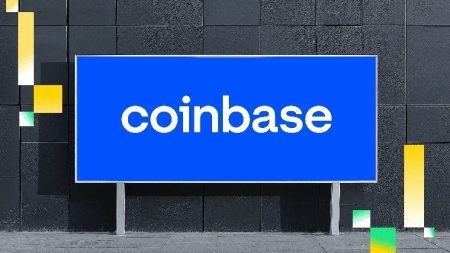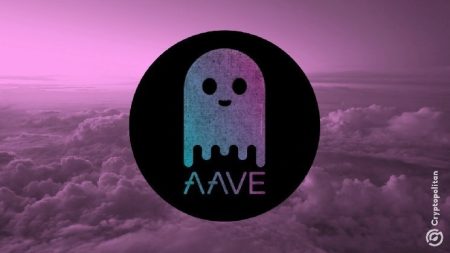Beyond Big Tech: How to Give Your Local AI Model Free Web Access with MCP Servers
The Private, Zero-Cost Alternative to Corporate AI Search Tools
In a digital landscape increasingly dominated by tech giants, the ability to have AI assistants that can search the web without routing your data through corporate servers seems like a premium service. OpenAI, Anthropic, and Google have positioned themselves as the gatekeepers of AI with internet access—but this narrative is being challenged by an open-source alternative that puts privacy and affordability at the forefront.
Model Context Protocol (MCP) servers are revolutionizing how everyday users interact with AI by enabling even lightweight, locally-run models to search the web, analyze articles, and access real-time data without compromising privacy or requiring subscription fees. This approach represents a significant shift in AI accessibility, democratizing capabilities previously exclusive to high-end commercial offerings.
Breaking Free from Corporate AI Dependencies
The conventional wisdom suggests that powerful AI requires significant computing resources and corporate infrastructure, but MCP servers flip this paradigm on its head. These tools allow consumer-grade models running on personal computers to perform tasks previously reserved for cloud-based giants like ChatGPT or Claude.
What’s particularly striking about this approach is the absence of hidden costs. The MCP ecosystem leverages services with generous free allowances: Brave Search offers 2,000 queries monthly, Tavily provides 1,000 credits, and some options require no API key whatsoever. For context, these limits far exceed typical usage patterns—most users won’t approach 1,000 searches even in an entire month.
“The technological barrier to entry for having AI with web access has effectively disappeared,” explains digital privacy advocate Marcus Chen, who has been tracking the development of local AI solutions. “We’re witnessing a quiet revolution where users can keep their data local while still enjoying advanced AI capabilities.”
Understanding the Technology Behind MCP Servers
To grasp how MCP servers function, two fundamental concepts require explanation. Model Context Protocol itself is an open standard released by Anthropic in November 2023, designed to create a universal interface between AI models and external tools. Rather than requiring explicit instructions for every API interaction, MCP allows models to determine independently how to achieve user-defined goals.
The second critical concept is “tool calling” (sometimes referred to as “function calling”)—the mechanism that enables AI models to recognize when they need external information and invoke the appropriate function to retrieve it. When you ask about current weather conditions or breaking news, a model with tool calling capabilities identifies the need for fresh data, formulates a proper request to an external service, and seamlessly integrates the results into its response.
“Think of MCP as a universal adapter that connects modular tools to your AI model,” says Dr. Samantha Rivera, AI researcher at the University of California. “Instead of being limited to information from its training data, your model can now reach out into the world and gather what it needs in real-time.”
The technical requirements for implementation are surprisingly modest: Node.js installed on your computer, a local AI application supporting MCP (such as LM Studio 0.3.17+, Claude Desktop, or Cursor IDE), and a model with tool calling capabilities. Even consumer-grade hardware can run models like GPT-oss, DeepSeek R1, Jan-v1-4b, Llama-3.2 3b Instruct, or Pokee Research 7B—all of which support the necessary functionalities for web searching.
Setting Up Your AI with Private Search Capabilities
Configuring MCP servers revolves around a single mcp.json file, which specifies the name of each tool, the command to run it, and any required environment variables like API keys. While this might sound technical, the process has been streamlined to the point where users can simply copy and paste configurations provided by developers.
Among the various search tools available, three stand out for different strengths. DuckDuckGo offers the simplest implementation—requiring just a couple of clicks through LM Studio’s interface to activate. Brave Search provides more robust capabilities with its independent index of over 30 billion pages and privacy-first approach that eliminates user tracking. Tavily rounds out the offerings with specialized search capabilities for news, code, and images.
“What’s remarkable is how these tools maintain privacy while still delivering comprehensive results,” notes cybersecurity expert Alex Fernandez. “The searches happen through your local model, so your personal data and search history aren’t being compiled into a profile for advertisers or other third parties.”
Setting up these tools requires minimal configuration. For example, Brave Search needs users to create a free API key, then add a simple JSON configuration to their LM Studio settings. The entire process takes less than five minutes and immediately transforms a local model into a privacy-respecting search assistant capable of retrieving current information on any topic.
Beyond Search: Reading and Interacting with Web Content
While search capabilities alone represent a significant enhancement to local AI models, MCP servers can do much more. MCP Fetch addresses a crucial limitation of search engines by retrieving complete webpage content and converting it to markdown format optimized for AI processing. This allows models to analyze entire articles, extract key information, or answer detailed questions about specific pages.
The practical applications are extensive. Journalists can research breaking news from multiple sources without revealing their angles to corporate servers. Students can analyze academic papers by simply providing a URL and asking for methodological critiques. Developers can troubleshoot code by having their AI search for similar error messages across technical forums and documentation.
More advanced tools like MCP Browser or Playwright take functionality further, enabling AI models to interact with websites—filling forms, navigating complex pages, and even handling JavaScript-heavy applications that static scrapers struggle with. This turns local AI models into capable web automation assistants without requiring programming expertise from the user.
“The ability to have an AI that can not just search but actually read and interact with web content is transformative,” explains tech educator Maria Gonzalez. “Users can ask their model to summarize research papers, compare product reviews across multiple sites, or extract data from complex webpages—all while maintaining complete control over their data.”
The Future of Private, Local AI Assistants
As MCP servers continue to evolve, they represent an important counterbalance to the centralization of AI capabilities by major tech companies. By empowering consumer-grade models with web access and tool integration, they’re fostering an ecosystem where privacy-conscious alternatives can flourish without sacrificing functionality.
The implications extend beyond individual users. Small businesses that need AI capabilities but have privacy concerns or budget constraints can leverage these tools without committing to expensive subscription services. Researchers working with sensitive information can conduct their work without exposing data to external parties. Journalists investigating controversial topics can maintain confidentiality throughout their research process.
“We’re seeing a paradigm shift in how AI assistants can be deployed,” says Dr. Rivera. “The future isn’t necessarily about building bigger models that know everything—it’s about creating efficient systems that know how to find and process information when needed, while respecting user privacy.”
For those interested in exploring MCP servers, a complete configuration integrating multiple services is readily available. By adding this single file to their setup and installing the necessary dependencies, users can immediately enhance their local AI models with comprehensive web access capabilities—no coding required, no complex setup procedures, no subscription fees, and no data harvested by corporations.
In a world where digital privacy is increasingly scarce and AI capabilities seem locked behind paywalls, MCP servers offer a refreshing alternative—putting powerful tools in the hands of everyday users while maintaining their digital autonomy. As awareness of these options grows, they may well represent the future of how we interact with AI: locally, privately, and on our own terms.















